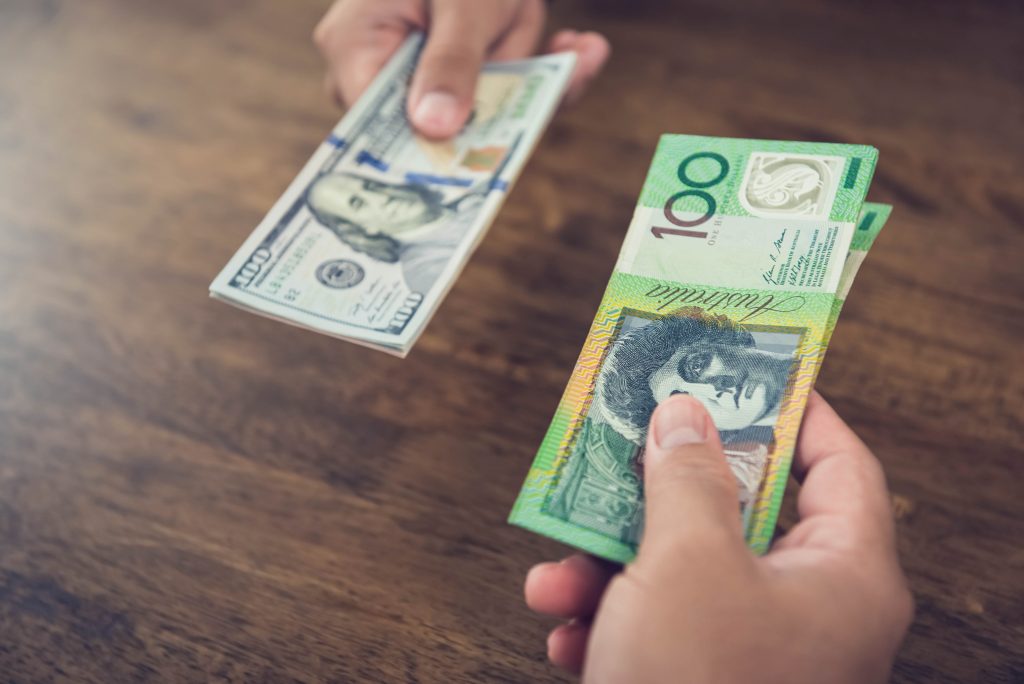Buying foreign exchange currency is sometimes necessary, especially when traveling or sending money to someone in a different country. If you are traveling, you might use your debit card to make purchases, but it is always good to have some local currency. When you do, you can quickly pay for things like transportation, street food, or make other informal payments. A helpful rule of thumb is to have around fifty dollars’ worth of local currency for contingency purposes. In this case, you will need to exchange your local money, for example, your Canadian dollars, to your destination country’s foreign exchange currency.
In this article, we break down all you need to know about where to buy foreign currency both locally and when abroad.

Where to Exchange Foreign Currency Locally
It is wise to plan and exchange your Canadian dollars for your destination country’s local currency. In this case, you have several options to pick from:
CanAm Currency Exchange
CanAm Currency Exchange offers some of the best currency exchange rates in Windsor. With exchange rates up to 2.75% better than interbank rates, buying foreign currency at CanAm saves you quite a bit of money. CanAm Currency Exchange offers both electronic funds transfers across Canada and in-person transactions at its outlet in 3234 Dougall Ave, Windsor, ON N9E 1S6.
Post Offices, Bank or Credit Union
Your local financial institution or post offices are your best bet when it comes to exchanging foreign currency at a reasonable rate. In Canada, the currency conversion rate in these institutions is based on indicators set by the Bank of Canada. When buying foreign currency, you can either visit a branch and purchase the currency, or make an order online, which may come with some charges.
Online Foreign Exchange Provider
You can also exchange your money using an online currency exchange service provider. They offer both in-person pick-up or delivery. Their rates differ from those of a bank but are slightly better than a traditional forex bureau. If you request a more substantial amount of foreign currency, they may give you a more favorable exchange rate or waive your delivery charges.
Traditional Forex Bureau
Traditional forex bureaus are typically strategically located at places like the airport, popular shopping malls, and other high-foot-traffic areas. While they are easily accessible, you may not get the best exchange rate. Traditional forex bureaus are an excellent option if you cannot access any of the other options above.
Where to Exchange Foreign Currency When Travelling
If you cannot buy foreign exchange currency before you travel, do not worry, you have some options once you arrive at your destination.
Here they are, ranked from the best exchange rate to the worst:
Your Bank’s ATM Network
Using your bank’s ATM network to buy foreign currency can be convenient, safe, and fast. Depending on your bank’s policies, you can withdraw cash in the local currency straight from your checking account. The drawback of this method is that you have no option to negotiate the rate, and you will have to pay ATM fees for each withdrawal.
Foreign Bank Counters or ATMs
You can also buy foreign currency from a local financial institution. Walk into a branch and purchase local currency or use a local ATM that supports your card brand. Keep in mind that this method relies on local exchange rates, which may be influenced by factors like local interest rates and inflation.
Local Forex Bureaus, Hotels and Stores
If you must buy foreign exchange, you can do so at a forex bureau, hotel, or store. Since they usually offer vastly different rates from banks, you should only exchange the least amount you need.
Remember The Three Golden Rules of Exchanging Foreign Currency
Now you know where to buy foreign exchange currency, but there are some rules of thumb you should always keep in mind. They are:
1. Avoid exchanging foreign currency at the airport, hotel, or other tourist centers.
We have touched on this earlier in the article. The reason you should avoid these places is that they have high exchange rates. For example, if your bank adds five basis points to the exchange rate, these places may add up to twenty basis points. They do this because they anticipate that foreigners and tourists urgently need foreign currency. To avoid this, either exchange your money before traveling or only exchange a minimal amount and exchange a more substantial amount when you have access to a bank or ATM.
2. Always compare exchange rates beforehand.
Understanding what different exchange rates mean is essential in the foreign exchange process. If you are traveling from Canada to France, for instance, understand how the currency pair trades against each other. Doing so will help you understand the various quotes you will get when you exchange your money.
3. Cards and ATMs offer convenience at a cost.
Using your debit or credit card to buy foreign currency is easy and convenient but can come at a steep cost. Before using this method, always inquire from your bank what charges you will incur during currency conversion. The same goes for ATMs. ATM fees can mount if you are continually withdrawing foreign currency. If you must use your card or an ATM, withdrawing in batches is your best option.
In Summary
If you were wondering where you should exchange foreign currency, now you have some options. Once you understand the basics, it should be easy to buy foreign exchange currency, whether locally or when traveling. Whichever option you pick, always remember that you are in control of how much foreign currency you get for your money. If you are not happy with an exchange rate in one place, you are always free to visit a different place and request a better exchange rate.




